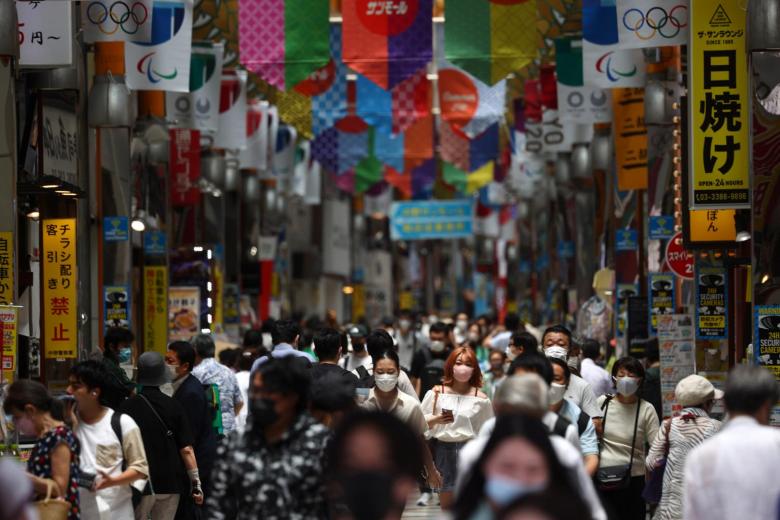TOKYO (BLOOMBERG) - Tokyo consumer prices unexpectedly rose for the first time in a year, another sign of a recovering inflation pulse in Japan, though the pace of gains was far from the levels fuelling fears elsewhere in the world.
Prices in Japan's capital, excluding those for fresh food, ticked up by 0.1 per cent in July compared with a year earlier as electricity costs stabilised and newspaper prices rose, the Ministry of Internal Affairs reported on Tuesday (Aug 3).
Economists had expected prices in the city to stay flat for a second month following 10 months of falls.
Downward pressure on Japan's prices is lifting as global energy markets rebound from the pandemic, but inflation remains far more subdued than elsewhere.
In contrast with the Federal Reserve and other central banks considering an eventual withdrawal of stimulus, the Bank of Japan (BOJ) is likely stuck with its easing for the foreseeable future.
Key insights
The BOJ last month reiterated it sees prices drifting up once economic activity improves, but it still does not expect inflation to reach its 2 per cent target any time before 2024.
The timetable for a fuller recovery could also be delayed. Japan last week expanded a state of emergency to areas surrounding Tokyo and extended it to the end of August in the face of a record virus surge unfolding as the country hosts the Olympics.
"Prices will stay subdued this quarter as the virus situation hurts consumer spending," said economist Hiroaki Muto at Sumitomo Life Insurance.
"The BOJ is in a long battle and we're likely to see it stick to the current policy framework for years to come."
Mr Muto said shoppers will start to splash out as vaccination rates increase, but price data could actually fall once public safety improves enough to allow the government to reinstate its Go To Travel campaign and other discount programmes.
Another headwind for Japan's prices could come on Friday when statisticians rebase the consumer price index, using 2020 as the reference year. The change could give even more weight to mobile phone fees that have dropped in response to pressure from Prime Minister Yoshihide Suga.
Mobile phone fees dropped 29 per cent, shaving 0.5 percentage point from the overall index.
Energy prices rose from a year earlier for the first time since August 2019.
Inflation was flat when excluding the cost of both fresh food and energy. That matched the projection.

